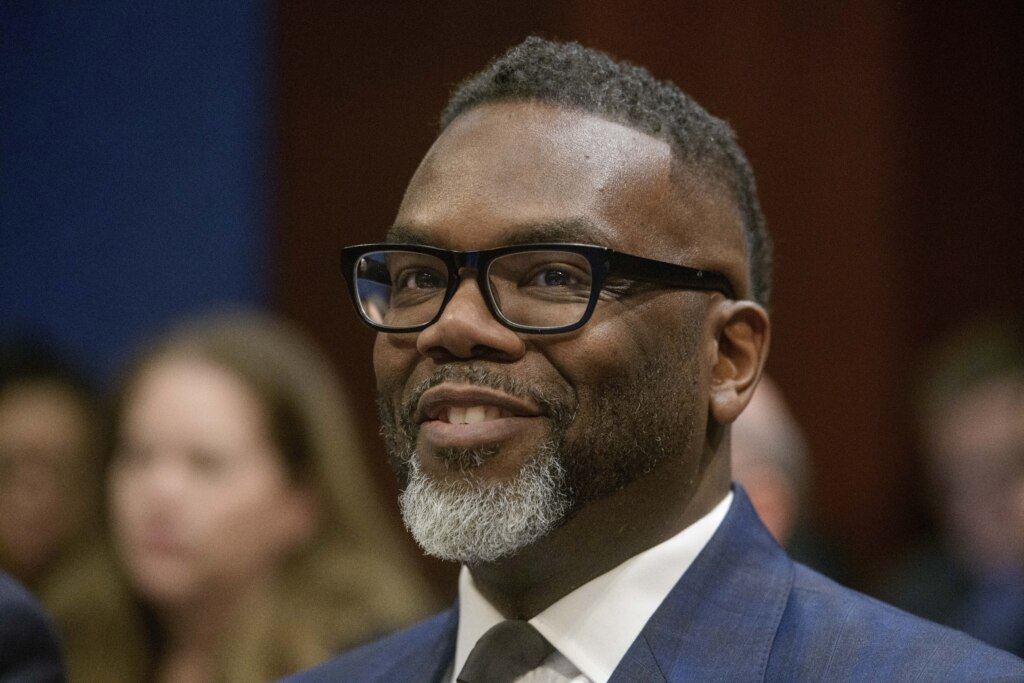A $1.12 billion budget gap spurs Chicago Mayor Brandon Johnson to circulate a menu of 26 tax hikes. Instead of making Chicago even more hostile to taxpayers, he should be looking at budget reforms and ways to stop spending so much.
Facing a projected $1.12 billion shortfall in 2026, city leaders have circulated a list of 26 potential tax and fee increases for discussion.
What’s not on the list are 26, or 13, or even one idea for changing the way the city operates so it doesn’t need to constantly come up with creative ways to get more money. Chicagoans already face some of the nation’s highest taxes.
Mayor Brandon Johnson should be focusing on spending discipline or structural reform, such as cutting bloated costs, controlling spending and fixing the city’s pension crisis.
Here are nine of the worst ideas from the list of 26:
Corporate excise tax ($1.5 billion)
The most dramatic idea was a new corporate excise tax that would target businesses with over $8 million in annual payroll in Chicago. The tax would levy 5% of the payroll costs for employees earning over $200,000 per year.
This proposal has already met heavy opposition from business leaders, with Chicagoland Chamber of Commerce president Jack Lavin stating the tax is a “direct deterrent on companies locating here, staying here, creating jobs here.”
High taxes have been a primary contributor to the city losing at least 10 major headquarters since 2020 including three of the largest companies In the U.S.: Caterpillar, Boeing and Tyson Foods.
The tax also faces legal challenges. Lavin has said, “It’s an income tax, so I don’t think it’s constitutional; it certainly will be litigated.”
Charge sales tax on services (up to $305 million)
Similar to an idea proposed statewide for Illinois, a sales tax on services would extend taxes to items such as haircuts, plumbing, lawncare and more. Taxpayers already have to contend with a city sales tax rate of 10.25%, one of the highest in the nation.
This change would require action from the Illinois General Assembly and approval by Gov. J.B. Pritzker, who has already voiced reservations about broadening the sales tax.
Garbage tax collection (up to $296.9 million)
Chicago’s garbage collection fee has been $9.50 since 2014, with strong opposition whenever fee bumps were discussed. Chicago currently collects $68.8 million in revenue each year to cover garbage collection, against an annual cost of $167.2 million. To bridge that gap, city leaders are again eyeing higher fees, with proposals ranging from a $15.50 per month fee up to $55 per month.
The highest option would cost families about $550 more per year, a big boost in a city already dealing with high property taxes, rising rents and inflation.
Other tax and fee ideas
- New congestion surcharge: $90 million
- Tax on restaurant meals: $20 million
- Bottled water: $27.9 million
- Checkout bags: $13 million
- Extending amusement tax to ticket resellers: $38 million
- Imposing a city tax on sports betting: $17 million
Why tax instead of fixing budget issues?
The menu of 26 tax hikes raises the question: why target taxpayers instead of reforming Chicago leaders’ bad spending habits?
Chicagoans already pay some of the highest local taxes in the country to cover nominal corporate fund expenditures which have expanded by nearly 50% since 2019, double the rate of inflation. The biggest cost drivers are pension obligations, department expansions and rising contract expenses.
Better solutions for a sustainable budget
- Audit and reduce spending: Departments such as the City Treasurer’s Office, Public Health and Innovation & Technology have each grown by over 80% since 2019. A thorough review of programs, staffing and contract spending could uncover significant savings.
- Cap budget growth: Link annual corporate fund spending increases to the 10-year average growth in the consumer price index to keep spending in line with what taxpayers can afford.
- Push for pension reform: Chicago’s pension systems are among the worst funded in the country. As a result, pension payments have seen large increases, contributing to deficits and crowding out funds for services residents expect. Chicago should use its clout in Springfield to urge the Illinois General Assembly to put a state constitutional amendment on the ballot that would allow for reform. Comprehensive pension reform can protect workers, free funds for expected services and lower burdens on taxpayers.
While these 26 taxes are only ideas at present, they highlight an ugly norm: seek more revenue, not reform. Chicagoans deserve a government that spends responsibly and makes structural changes, not one that bumps along from crisis to crisis to justify more taxes.
